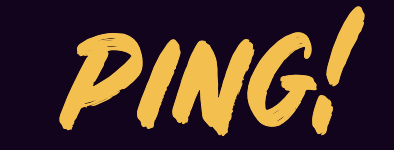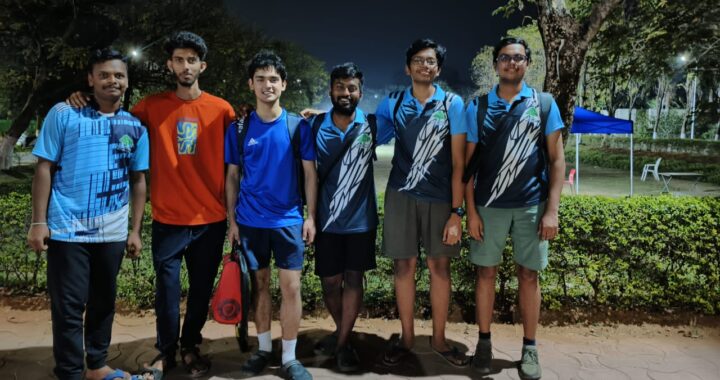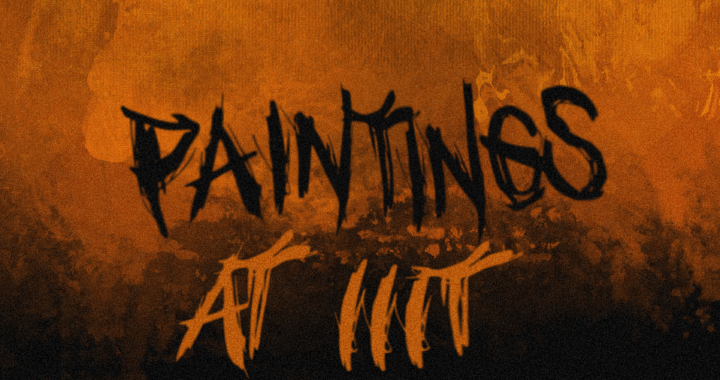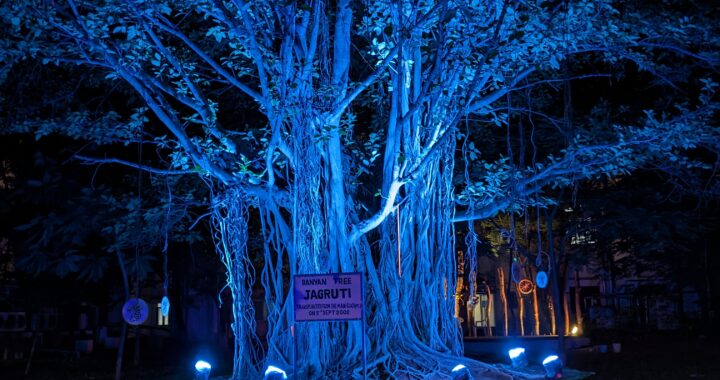Summer Stories

Ajit Mathew
Getting the intern
I had tried a lot of ECE companies for internship but failed. At the same time I was working on Kode-the-Circuit for Felicity Threads, so Tushant motivated me to apply for a FPGA based org participating in GSoC. I started by sending a mail to the org’s mailing list with ideas regarding a problem. The mentors asked me to submit a proposal and a small patch. I did submit a proposal (which was revised multiple times) and a patch (which did not function properly :P) which somehow impressed the mentors and hence I got selected. I was very happy and relieved as finally something worked my way.
Work
My org, TImVideos is developing an open source solution for live event streaming. It uses FPGA to compress HD video stream and my job was to improve the frame rate of this system. I coded mostly in Verilog and VHDL. At the end of the project I did improve the frame rate and also created a debug infrastructure for developers to debug the firmware easily.
The experience
My project was different from a usual GSoC project. Firstly it was a hardware based project, so I had to buy a Rs 20k FPGA board and work with HDLs. Secondly, it was an optimisation project, hence there wasn’t a definite solution. It took me one and a half month just to find the bottleneck in the system and rest of the time was spent fixing the bottleneck and adding new features. I had to review a lot of code which was painful but at the same time I got to learn a lot. The best moment of the internship was when I was inducted into the “Hardware Hacker Team” of my org. It was a very proud moment. In all, it was plenty of hard work but great learning experience.
Tips for juniors
There are some orgs where ECE students can contribute especially hardware orgs like beagleboard, TimVideos and signal processing like GNU Radio, Octave. But competition for a GSoC intern at such orgs is high and hence I would recommend to start early. Also doing projects apart from stuff prescribed in curriculum helps a lot.
Vishrut Mehta
Getting the Intern:
For INRIA, The process starts in december, you need to apply on the portal and choose 5 projects from the already listed projects in the list. Also, you need to upload a recommendation for the same. IIIT is a parter institute for INRIA, so when you apply to the portal, you need to add IIIT as its parter institute for higher chance of selection. Also, you can mail the Professor of the project selected stating the reason for your application and what did you like in tha particular project. After this, I had an interview on skype with the Professor, and asked me about some of the projects listed on my resume. After a month, my selection got confirmed. During this month, I stayed in touch with the professor to discuss the project, also read some research papers realted to the problem.
The project:
My project was related to mutli-cloud applications, in a team called Myriads. It was related to dynamically reconfiguring an application on multi-cloud systems. There were daily meetings and discussion with the Professor and the team for the problem, issues regarding implementation, choosing the tools, etc. The work culture at INRIA is very different from here, I used to work from 9am to 5 pm which included 1 and half hour hours of lunch break and 2 coffee breaks. The team and the work I was doing was great.
The experience:
I learned many new things in those 3 months, and I am still in touch with my guide for further extension of my project. I lived in a city called Rennes, 2 hours away from Paris in France. On every weekend, we used to plan a trip. I visited many countries – Spain, Italy, Switzerland, Netherland and Germany. The best experiences I had during the internship and the trips I made were, Scuba diving in Costa Brava and San Fermin – running with the bulls, Pamplona in Spain, attended live performance of the bands like Metallica, Iron Maiden, Opeth, Linkin Park, Kings of Leon, etc at the biggest rock festival Rock am Ring in Germany and Amsterdam. So apart from the internship project also, the experience was great.
Akshat Khandelwal
I was a research assistant at Indian Institute of Management, Ahmedabad in the summer of 2014. The name of institute might be misleading, I worked on public policy project there rather than the widely-perceived-meaning of management project. I would describe the kind of work I did as we move on.
One way to get accepted as an intern or an assistant in a university project is writing to individual professors. I browsed through the public policy faculty profiles on the concerned institution website, looked at their area of work, and subsequently sent a cover letter with my resume. When one is in 2nd or 3rd year, they might broadly know what they want to do but their could be an underlying confusion with the specific area. In my case, public policy concerns health, sanitation, education, urban development, etc. You would have to grab the attention of the professor, for that you need to show that you’re really interested rather than the work you’ve done in that area previously. I drafted a common email template where I left some blanks. I would look at the area in which the professor works and would edit my interests accordingly. Then, I would look at his publications and pen down that I am interested in that particular kind of work. I would mention my end goals of the internship and why would I make a good candidate. This largely concludes your cover letter. Resume is the tricky part. You’ve to keep it at one page, and a faculty member from a management background looking for an intern in his field doesn’t care if you know 100 programming languages or you have done multiple coding projects. This might backfire as these professors often require people with coding skills and your resume might just tell him that. There goes a professor who won’t want you for a management kind of project. He wants to see your leadership profile, the initiatives you took, or why do you think you are interested in management and not in your field of study. You need to sell yourself, if you were the captain of the institute badminton team, put down the statistics of number of tournaments you won, or the highest level you reached, if you know a skill most people don’t, craft it in a catchy way. I incidentally had a fine background in education related policy and thus it was easier for me to prepare a relevant resume and cover letter.
This process of sending emails requires tonnes of patience. I started writing in December till February end and after sending over 500 emails, I shortlisted the one I liked. Universities in USA don’t give paid internships if you don’t have relevant background and paying 3-4 lacs for a summer is pointless.
Coming to what I did, I worked in the Right to Education Resource Centre at IIM-A which is an initiative of the professor I worked with and his ex-student. The centre focuses particularly on section-12 of Right to Education which primarily states that 25% seats in all private schools have to reserved for students coming from underprivileged backgrounds from class 1 to class 8. This tuition would be free of cost for 8 years and government would reimburse this cost to the schools. We were a bridge between the Government, the schools and the students. The Act is relatively new and no one is particularly acquainted with its intricacies which led to a lot of confusion within these three bodies and we sorted them out. Affluent schools would scare naive poor parents by stating that their kids won’t be able to cope up with English as they have never used it before. Government would bow under some schools who are run by politicians. Schools would complain that they don’t get payments from the government. We as a volunteer body tried to set these things in order.
When you work around a policy, you see different aspects of it. We collected huge amount of data via on ground surveys and analysed where things needed improvement. I personally met the convener of Aam Aadmi Party in Ahmedabad who himself is an erstwhile educationist to discuss the improvements that we could suggest. Ex-Principal secretary to the Government of Gujarat, Sudhir Mankad, who directly worked with Narendra Modi was the prime architect of RTE Act met us briefly once. We interacted with him to get an idea of the ideology behind the formation of RTE.
Overall, I would say that it was an experience of a lifetime. I could feel that my actions actually made an impact in lives of many. I was never involved in policy making at this level. Meeting some of the best educationists and people of influence gave me in insight into how their thought process worked. I could see why IIM-A is touted as one of the best management institutions in the country, the professors I interacted with were no less than friends who would never make you feel like that you are a student. The kind of life as a student you could have there is extremely rewarding as the people you meet along the way may, at times, leave endless memories to cherish.
Shiv Raj
Summer Intern at Indian School of Business
It was late March, when I received a confirmation mail followed by a soothing phone call, all to confirm that I wouldn’t be spending the coming summers at home. Frankly speaking, I was afraid of the latter coming true.
Back then, I had pretty decent knowledge about various projects areas that my core field had to offer. The craving was for something different. My fascination towards management was properly channeled when I decided to explore this field before completely moving into it. So, after figuring out my domain of interests, I sent in my applications in February to a particular set of elite management colleges in India. After this all I had to do was wait. Finally after almost a month’s impatience, my inbox starred a positive mail from ISB. This was followed by a few telephonic conversations with the mentor, who after having been convinced of my soft skills, asked me to join him on a newly started research project for a period of two months, supported with a decent stipend. Bingo!
On my first visit to the ISB campus, I was awed by the majestic grandeur and the social niche that the place had been modeled into. As an engineering grad, I could notice a sweep shift from codes to stocks, shorts to suits, veg-puff to subs and jobs to careers. A proper workplace, distinctly comfortable chair, coffee machine by the side, Italian and Mexican options for lunch (paid, though) and people talking ‘business’ all around. It was a place to be.
For those interested in knowing more, I was working in the Strategy department with one of the highly acknowledged Professors in the field. The project, titled ‘CEO Compensation’, had just been initiated when I began working. The qualitative idea was to study the trends of compensations offered to CEOs and Managing Directors of the companies featuring in BSE-500 over the past 10 years (FY-2004 to FY-2013). The project is presently in its second stage where a similar study is being carried out for Top 600 Business groups. Apart from this project, I also got the opportunity to attend a full-fledged course with the PGP students there. This helped me a lot to enhance my understanding about B-school education.
So, concluding with an advisory note, I would recommend that people interested in this field should clearly evaluate what they want to achieve at the end of the internship. Its magnitude shouldn’t be limited to just a few lines on paper, but should also aid you in deciding a career for yourself.
In case you have any queries, I’ll be happy to help.
Sindhu Kiranmai
It all began on a confused week in mid-November in my 5th Semester. Perplexed at where my research project was going, I took some time off to look at the current research scenario in the field on Ontology and Semantic web. This gave me a brief idea about the various research topics, universities, research centers and active researchers working in the field. It was then that I came across Digital Enterprise Research Institute (DERI), an international web science research institute in Galway, Ireland.
I was interested in the work conducted by the lab, however their openings were only for post-graduate or PHD students. Nevertheless, I wrote to the unit heads regarding my work and interest. Most of them replied saying that they had no positions available at the moment.
To my surprise, around four months later I got an email from Dr. Paul Buitelaar, head of the Unit for Natural Language Processing(UNLP), regarding an intern opening. I learnt this later that most of these research centers, pool in all the resumes received by the various unit heads irrespective of the center. Whenever there is an opening, they look through all these resumes for a suitable candidate. A couple of skype interviews later, mainly focussing on my work and interests, I was offered a position as a Visiting Student Researcher for 3 months. It was paid internship and needless to say I was jubilant.
For my internship, I worked on a Content Analysis for Recommender Systems(CARS) project with the UNLP team. CARS is a project which aims at developing novel recommender functionalities based on content analysis using Natural Language Processing techniques and Linked Open Data. My work was two fold: data visualization for the project’s industrial collaborator Kennys Bookshop’s online website and coming up with an evaluation metrics for taxonomy generation. The work that I did was mainly technical involving concepts related to Databases and IRE.
To say that the experience was great is a gross understatement. I enjoyed the perfect Irish summer: cycling, cooking, hiking and exploring the city. The best part of the internship was meeting researchers from all over the globe: France, Iran, Latvia(Yes! it is a country), Syria, Tunisia..you name it.
I would strongly urge you guys to start early and keep applying to places you are interested in. The exposure is priceless!! 😀

 The Mess-y Situation
The Mess-y Situation  Ping! merges with Blogs@IIIT
Ping! merges with Blogs@IIIT  Cricket Corner: Looking Ahead to the Border-Gavaskar Trophy (Pt III)
Cricket Corner: Looking Ahead to the Border-Gavaskar Trophy (Pt III)  A perspective on sports in IIIT
A perspective on sports in IIIT  Paintings of IIIT
Paintings of IIIT  The Tale of Jagruti
The Tale of Jagruti  Cleaning up the Mess?
Cleaning up the Mess?